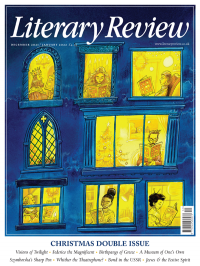Robert Service
Goodbye, Lenin
Collapse: The Fall of the Soviet Union
By Vladislav M Zubok
Yale University Press 535pp £25
Russian reforms have been like a roll of linoleum stretched over a floor riddled with woodworm. Many rulers – tsars, commissars and presidents – have had some understanding that the floorboards required replacement but most of them only patched up the lino and left untouched what lay underneath.
There is a difference between Russian and English linguistic usages. ‘Reform’ in the Anglosphere suggests an expansion of fairness and freedoms. In Russia it has never automatically been so. Tsar Peter the Great, a brutish moderniser, is known as a reformer. Pyotr Stolypin, the conservative premier who stamped violently on peasant rebels and gave privileges to the Russians over the other peoples in the empire, is also labelled a reformer. Communist Party general secretary Yuri Andropov tinkered with reforms of Soviet communism during his brief tenure as supreme leader (1982–4), and there has been some speculation that he might have attempted a more substantial assault on the communist status quo if he had lived longer.
Vladislav Zubok has a preference for reformers who used authoritarian methods. He picks out Stolypin and Andropov for commendation. At the heart of this book about the final Soviet years is the idea that Russia fell into the hands of two bodgers, Mikhail Gorbachev and Boris Yeltsin, who tore

Sign Up to our newsletter
Receive free articles, highlights from the archive, news, details of prizes, and much more.@Lit_Review
Follow Literary Review on Twitter
Twitter Feed
How to ruin a film - a short guide by @TWHodgkinson:
Thomas W Hodgkinson - There Was No Sorcerer
Thomas W Hodgkinson: There Was No Sorcerer - Box Office Poison: Hollywood’s Story in a Century of Flops by Tim Robey
literaryreview.co.uk
How to ruin a film - a short guide by @TWHodgkinson:
Thomas W Hodgkinson - There Was No Sorcerer
Thomas W Hodgkinson: There Was No Sorcerer - Box Office Poison: Hollywood’s Story in a Century of Flops by Tim Robey
literaryreview.co.uk
Give the gift that lasts all year with a subscription to Literary Review. Save up to 35% on the cover price when you visit us at https://literaryreview.co.uk/subscribe and enter the code 'XMAS24'